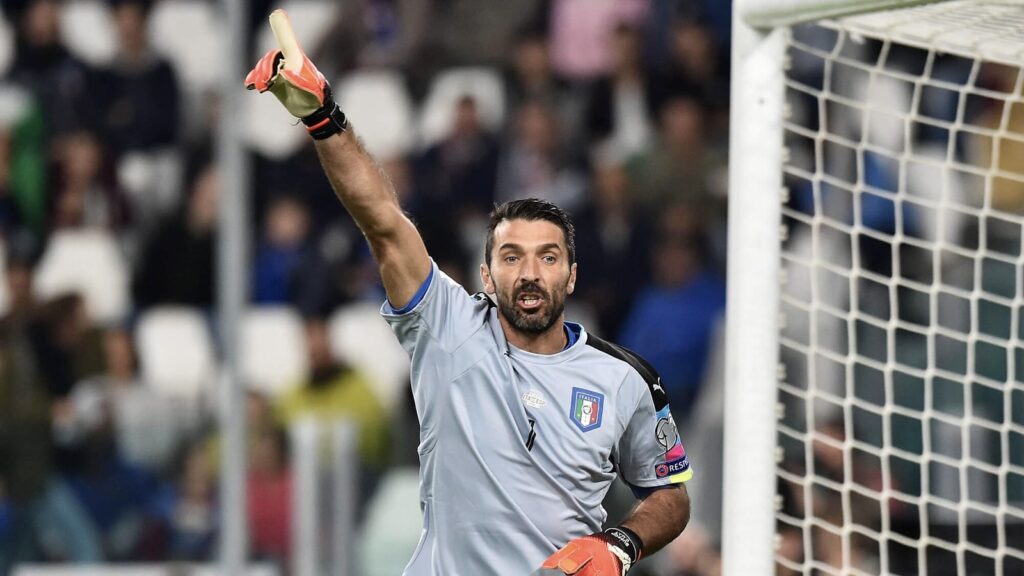Penalty shootouts would be among the most tension-filled and dramatic instances in football. If 120 minutes of football have produced no winner, the matter is settled by a number of one-on-one episodes of shooter vs. goalkeeper. Such a time is of maximum tension and pressure and at times ends either with absolute heartbreak or fulfilling glory. But how are penalty shootouts conducted? And why is such an event so intense for players and fans alike?
What Is a Penalty Shootout?
The penalty shootout is used to name the winner of a knockout game if football ends in a draw after normal time (90 minutes) and extra time (30 minutes). It was never used in league games, where draws are possible, but certainly finds its place in tournaments that must define a winner – one such as the FIFA World Cup, the knockout rounds of the UEFA Champions League or domestic cup competitions.
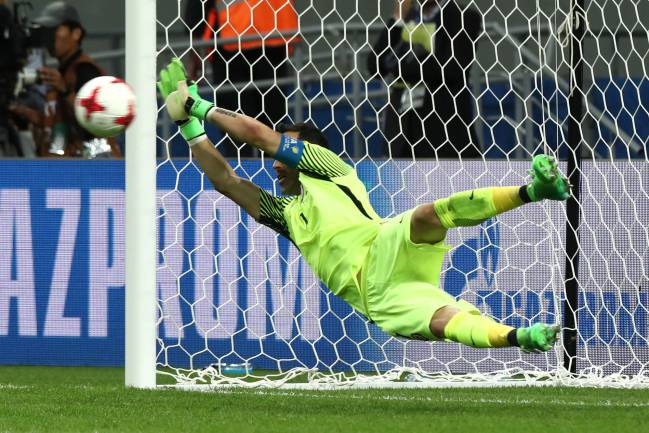
Basic Rules of a Penalty Shootout
Here’s how a penalty shootout works:
- Coin Toss: A coin toss decides which team takes the first kick.
- Five Penalties Each: Each team selects five players to take one penalty each. The teams alternate kicks.
- Winning Criteria: If one team scores more goals out of the five kicks, they win.
- Sudden Death: If both teams are tied after five kicks, the shootout goes to sudden death. Each team takes one penalty per round, and the shootout continues until one team scores and the other misses.
- Player Selection: All eligible players (excluding those sent off) must take a kick before any player can take a second one.
These simple rules set the stage for one of the most psychologically demanding scenarios in sport.
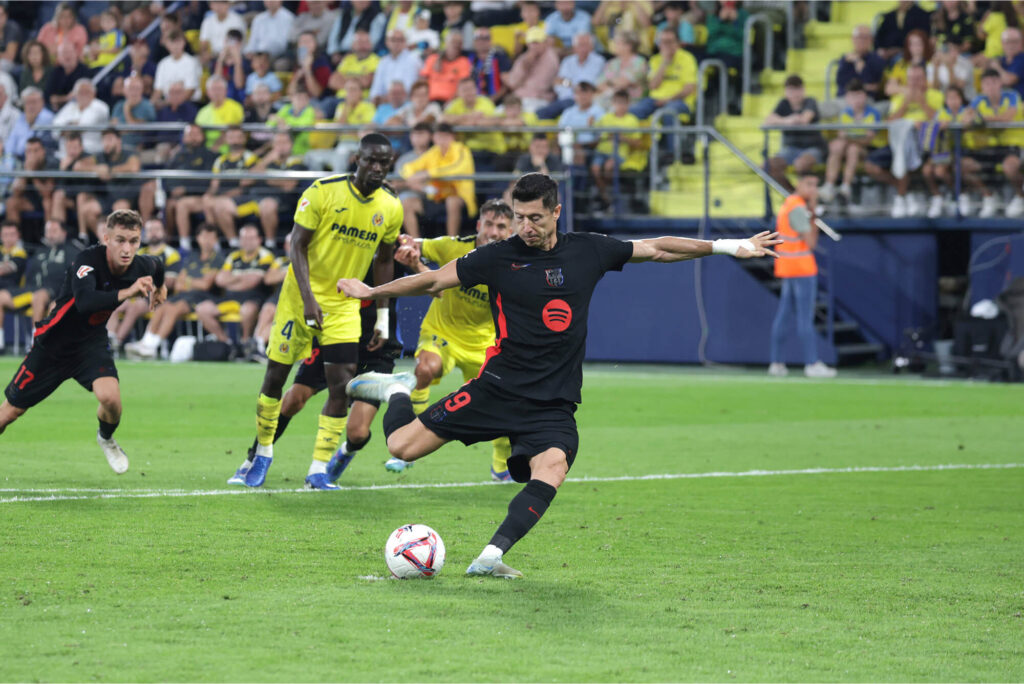
The Drama of the Shootout
Penalty shootouts are so dramatic because they magnify the emotional stakes of a match into brief, isolated moments. Each penalty feels like a match-deciding act. Fans hold their breath, players feel the pressure, and goalkeepers look to become heroes or scapegoats.
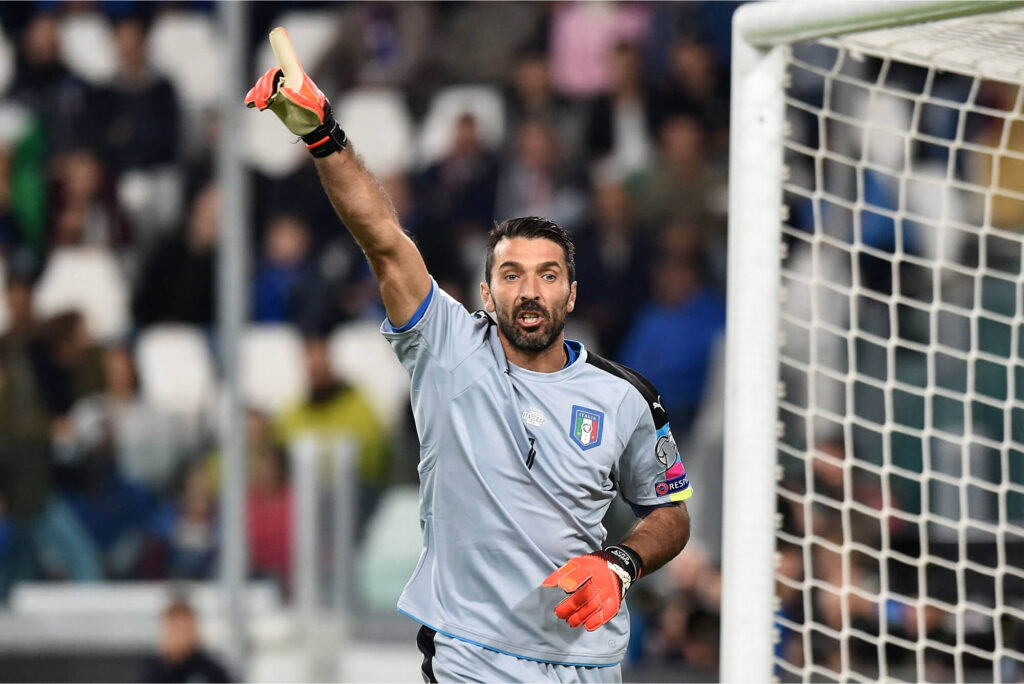
The Psychological Pressure
Penalty shootouts are often referred to as a “lottery,” but they are anything but random. Psychology plays a massive role.
- Pressure on the Taker: Taking a penalty in training or during a low-stakes match is very different from doing so in front of 80,000 fans with millions watching on TV. The pressure can cause nerves, overthinking, and mistakes.
- Goalkeeper Mind Games: Goalkeepers often use psychological tactics—delaying the kick, staring down the shooter, or making sudden movements—to unsettle the taker.
- Decision-Making: Players must choose between power and placement, or whether to watch the keeper and adjust mid-run-up. Studies show that kickers who stick to a pre-decided target tend to perform better.
- Body Language: Even subtle things—like posture, eye contact, or hesitation—can reveal nerves. Some keepers study body language to anticipate where the ball will go.
Sudden Death: The Final Test
When the initial five kicks end in a draw, the shootout moves to sudden death. In this phase:
- Each team takes one penalty in turn.
- If one team scores and the other misses, the game ends immediately.
Sudden death ramps up the tension even more. Every kick can be the last. Even the best players in the world have missed under this pressure.
Famous Penalty Shootouts in Football History
Several penalty shootouts have become legendary due to their intensity, drama, and consequences.
1. 1994 FIFA World Cup Final – Brazil vs. Italy
- This was the first World Cup final decided by a shootout.
- Brazilian goalkeeper Cláudio Taffarel saved Daniele Massaro‘s shot.
- Then, Roberto Baggio—one of Italy’s best players—blasted his shot over the bar.
- Brazil won 3-2 in the shootout and claimed their fourth World Cup title.
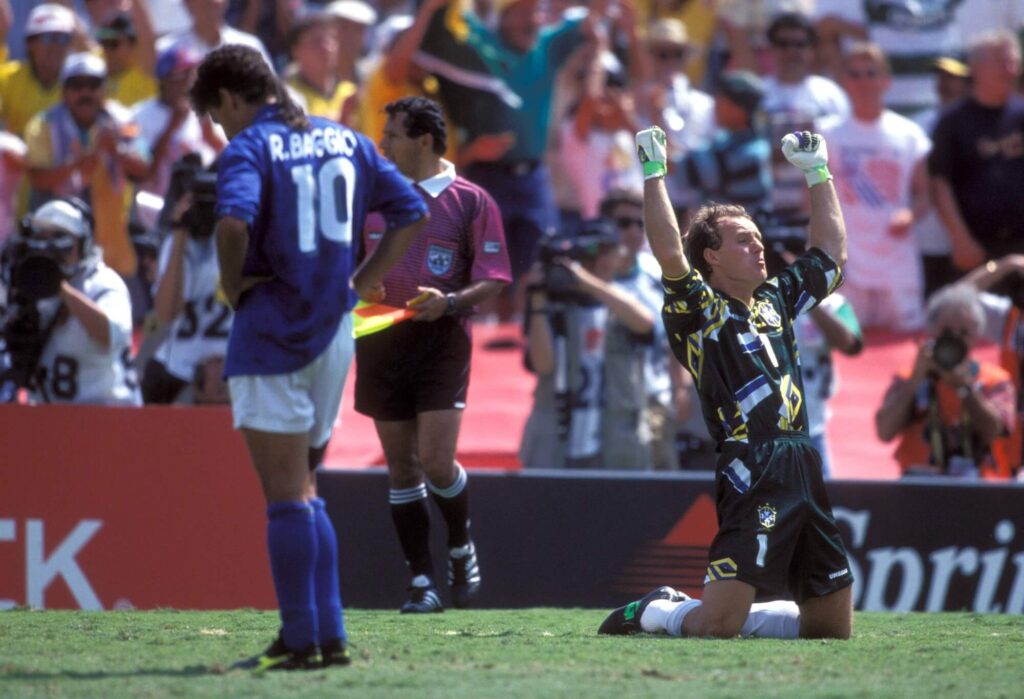
2. 2006 FIFA World Cup Final – Italy vs. France
- After a 1-1 draw, the match went to penalties.
- Italy scored all five penalties.
- France’s David Trezeguet hit the crossbar, and that miss proved decisive.
- Italy won 5-3 on penalties.
3. UEFA Champions League Final 2008 – Manchester United vs. Chelsea
- In the rain-soaked final in Moscow, Cristiano Ronaldo missed his penalty.
- Chelsea’s John Terry had a chance to win it but slipped and hit the post.
- Manchester United eventually won 6-5 in sudden death.
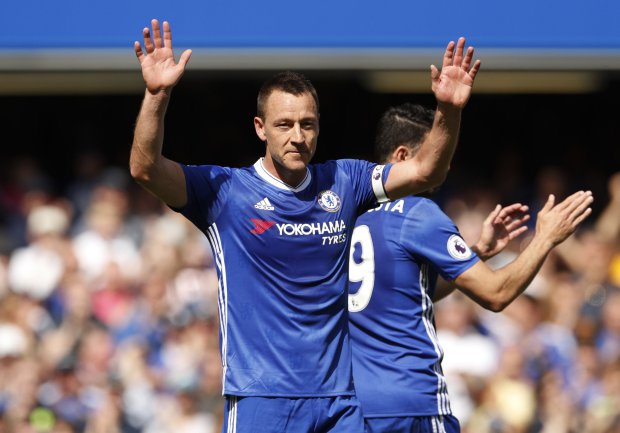
4. Euro 2020 Final – Italy vs. England
- Held at Wembley Stadium, the match ended 1-1.
- Italy won 3-2 on penalties after England’s young stars – Marcus Rashford, Jadon Sancho, and Bukayo Saka – missed their kicks.
- Gianluigi Donnarumma was the shootout hero for Italy.
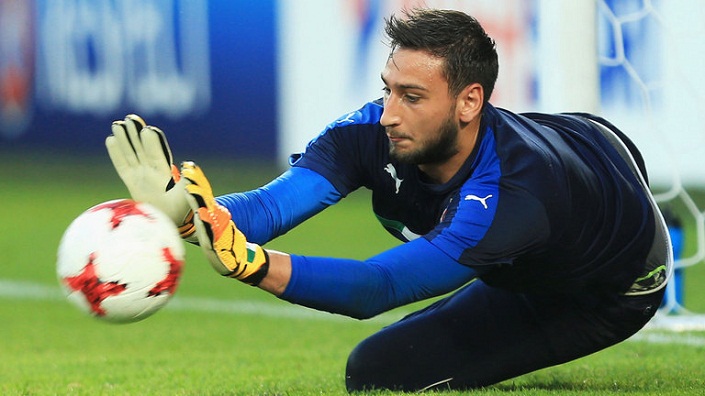
The Science Behind Penalties
Researchers and coaches have analyzed penalties from various angles:
- Strike Zones: Top corners are hardest to reach but hardest to aim at. Most penalties are aimed low and to the side.
- Run-Up Angles: The direction and speed of the run-up affect where the ball goes. A straight run often leads to a central shot.
- Keeper Behavior: Some goalkeepers move slightly before the kick, hoping to influence the kicker’s decision. Others wait until the last moment.
- Practice Matters: Teams that train under simulated pressure (e.g., crowd noise, time limits) tend to have higher shootout success rates.
Techniques to Improve Penalty Success
For players:
- Pick a Spot and Stick to It: Changing your mind mid-run can lead to poor execution.
- Breathe and Stay Calm: Controlling nerves through breathing or rituals can help maintain focus.
- Use Routine: Consistent body language and approach improve confidence.
For goalkeepers:
- Study Opponents: Analyzing past penalties helps in predicting kick direction.
- Commit Early or React Late: Both styles have merit. Committing early can surprise the taker; waiting allows reacting to the ball.
- Mind Games: Moving along the line, gesturing, or delaying the kick are legal ways to influence the shooter.
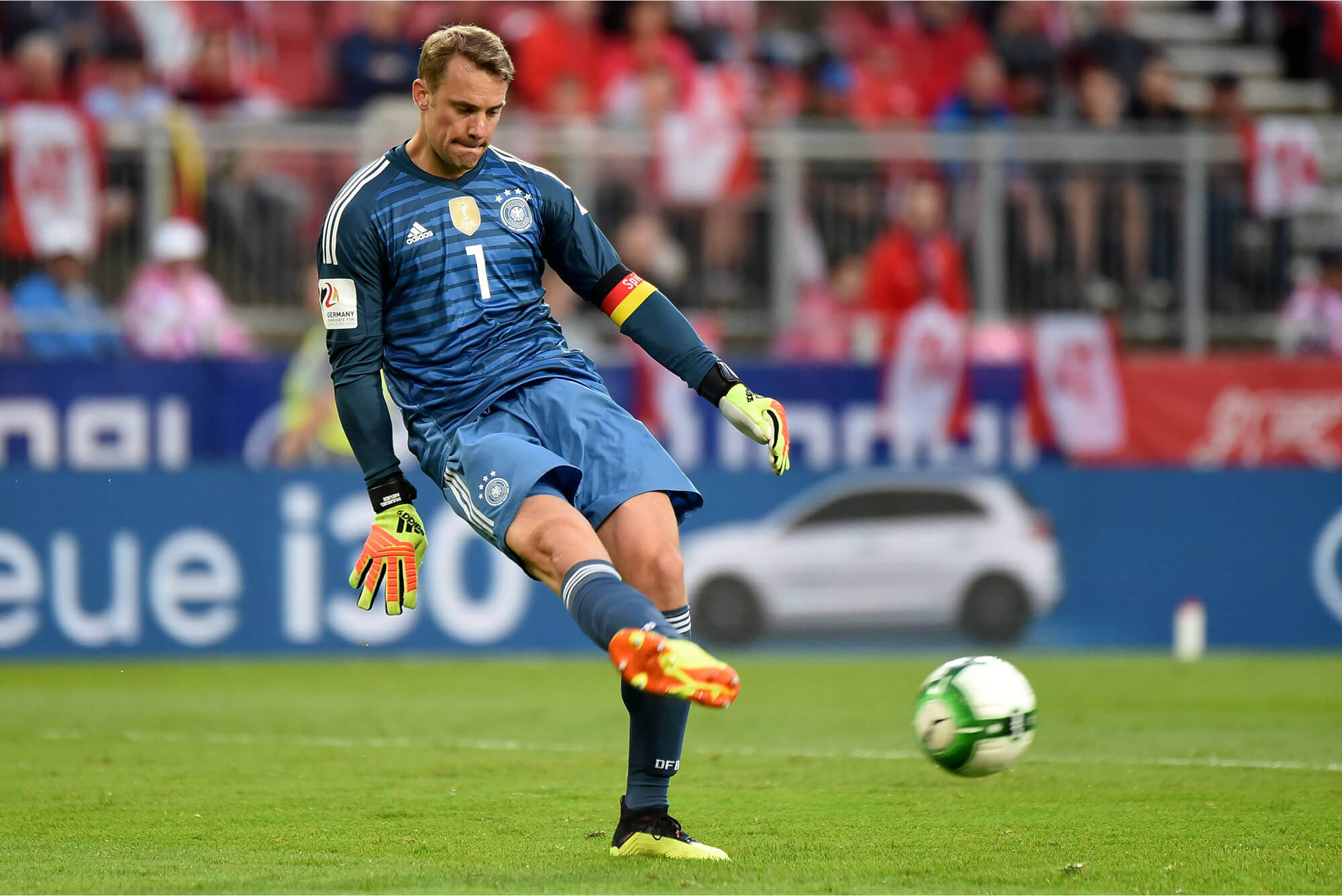
Why Fans Love (and Fear) Penalty Shootouts
To a fan, penalty shootouts are unforgettable. All the feelings of hope, fear and tension are squeezed into a few minutes. It really is football at its most raw and vulnerable.
Shootouts take the teamwork away into a series of individual performances by the players. Heroes are made, villains are created, and careers are carved out of a single kick.
Final Whistle: Test of Nerves and Skill
More than just the method of settling a match, penalty shootouts are about testing the nerves and character, about putting on a spectacle. They should be considered unfair or in their view too harsh, but their impact simply cannot be denied.Anytime, from a World Cup Final to a local tournament, the shootout strips the game to its essence – player vs keeper, nerves vs calm, success vs heartbreak. That’s why they’re unforgettable-resolution.
